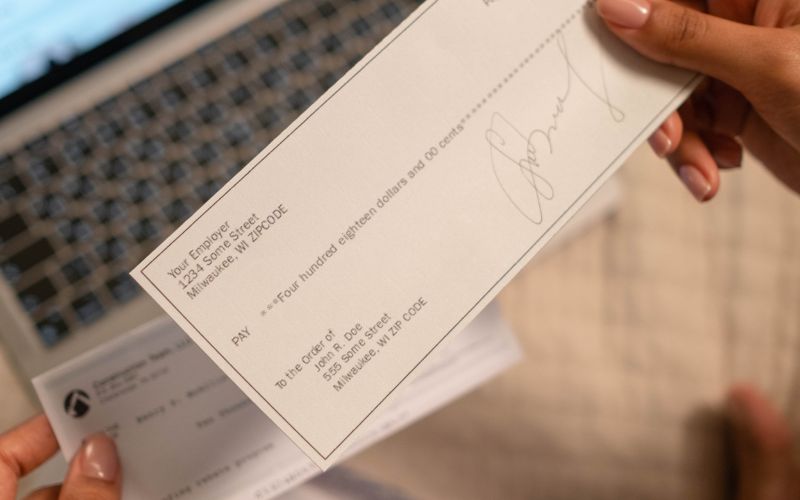
If you’re a small business owner looking to build strong credit and qualify for funding, understanding your D&B PAYDEX Score is crucial. It’s one of the most recognized business credit scores used by lenders and suppliers to assess your company’s creditworthiness. Whether you’re applying for a business loan or negotiating better vendor terms, this score plays a major role in determining what banks look for when reviewing a loan application.
In this guide, we’ll break down everything you need to know about the D&B PAYDEX Score, how it’s used, how it’s calculated, what the numbers mean, and how to improve it—so you can boost your business credit and meet the requirements for loan application with confidence.
What is the D&B PAYDEX Score?
The D&B PAYDEX Score is a business credit score developed by Dun & Bradstreet (D&B), one of the top commercial credit bureaus. This score ranges from 0 to 100 and is used to evaluate how reliably your business pays its bills.
In simple terms: the higher your PAYDEX score, the more reliable your business is perceived to be in paying creditors and suppliers on time—or even early.
The PAYDEX Score is based solely on your company’s payment history with vendors, suppliers, and lenders that report to D&B. It is not influenced by personal credit history.
How is a D&B PAYDEX Score Used?
1. Creditworthiness Assessment
Lenders and suppliers use the PAYDEX Score to assess your risk level. A high score suggests your business pays invoices promptly, making you a low-risk borrower or partner.
2. Loan Approval Decisions
The PAYDEX Score plays a direct role in meeting the requirements for loan application. Many banks refer to this score when determining what banks look for when reviewing a loan application, especially for unsecured loans.
3. Vendor and Supplier Relationships
Vendors may check your PAYDEX Score before offering net-30 or net-60 payment terms. A strong score can get you better terms, which improves cash flow and purchasing flexibility.
What is a Good D&B PAYDEX Score?
A good PAYDEX Score is generally 80 or above. Here’s how the ranges break down:
- 80–100: Pays on time or early (low risk)
- 50–79: Pays 8 to 30 days late (moderate risk)
- 0–49: Pays 31 to 120+ days late (high risk)
Tip: An 80 score means your business consistently pays vendors on time. To go above 80, your business needs to pay early.

How Is My D&B PAYDEX Score Calculated?
The PAYDEX Score is calculated using your company’s payment experiences reported to Dun & Bradstreet. Here’s what factors into it:
1. Payment Timeliness
The most significant factor is how quickly you pay your bills. D&B compares your actual payment date to the agreed payment terms.
- Pay early? Your score improves.
- Pay on time? Your score holds steady.
- Pay late? Your score drops.
2. Number of Trade Experiences
More trade accounts reporting to D&B results in a more reliable and robust score. Ideally, your business should have at least 3–5 active vendor accounts reporting regularly.
3. Payment Amounts
While payment size doesn’t directly affect the score, larger transactions can hold more weight in establishing your company’s creditworthiness.
What Do Different PAYDEX Scores Mean?
100–90: Excellent
Pays early (30 days or more before due date)
89–80: Good
Pays promptly (on time)
79–70: Fair
Pays 15 days late
69–60: Moderate Risk
Pays 22 days late
59–50: Borderline Risk
Pays 30 days late
49–0: High Risk
Pays 31 to 120+ days late or has severe delinquencies
Reminder: Lenders want to see scores of 80 or higher to confidently approve financing. Falling below 80 may hurt your eligibility and increase your interest rates.
How Is My D&B PAYDEX Score Used?
1. Meeting Loan Requirements
Lenders include the PAYDEX Score in their requirements for loan application, especially when evaluating your ability to handle debt. A poor score could disqualify your business from funding.
2. Evaluating Financial Risk
Banks, leasing companies, and insurance providers use the PAYDEX Score to determine what banks look for when reviewing a loan application. A weak score may result in:
- Higher interest rates
- Lower credit limits
- More collateral requirements
- Denied applications
3. Partner and Supplier Vetting
Other businesses may run a credit check on your company before agreeing to contracts. A low score could make them hesitant to work with you.

How Can I Improve My D&B PAYDEX Score?
If your score is low or non-existent, you can take the following steps to build or improve it:
1. Establish Trade Lines with Reporting Vendors
Use vendors like Uline, Quill, and Grainger, which report payments to Dun & Bradstreet. Make purchases and pay them early whenever possible.
2. Pay Invoices Promptly (or Early)
Make it a habit to pay before the due date. Even paying a few days early can significantly increase your score.
3. Add Trade References to Your D&B Profile
Dun & Bradstreet allows you to manually add up to 4 trade references. Choose vendors who’ve worked with you and paid attention to your timeliness.
4. Monitor and Correct Your Report
Use D&B tools like CreditSignal to monitor your score. If you notice inaccurate or missing data, you can dispute it directly with Dun & Bradstreet.
How Can I Check My Business’s PAYDEX Score?
You can access your score by:
- Creating a free D-U-N-S Number at Dun & Bradstreet
- Signing up for D&B CreditSignal (free) to monitor score changes
- Upgrading to CreditBuilder Plus (paid) for full access to your credit file, trade data, and monitoring tools
Knowing your score puts you in control and allows you to make strategic decisions for your business.
How is a PAYDEX Score Used?
Although we’ve touched on it above, it’s worth repeating: the PAYDEX Score is a key indicator of your company’s financial reliability.
Lenders Use It To:
- Determine loan approval
- Set credit limits
- Adjust interest rates
Vendors Use It To:
- Offer net terms (like net-30 or net-60)
- Decide whether to work with you
Insurers Use It To:
- Assess the risk profile of your business for policies or surety bonds
In short, your PAYDEX Score plays a role in almost every financial relationship your business forms.
Benefits of Having Good Business Credit
Having a strong PAYDEX Score offers many of the same benefits as a high personal credit score—but specifically for your business.
1. Better Financing Options
Banks and alternative lenders offer better loan terms and higher limits to businesses with excellent credit. This helps you meet the requirements for loan application more easily.
2. Improved Cash Flow
With more vendors offering favorable terms, you’ll have more time to pay for goods and services—freeing up cash to invest elsewhere.
3. Reduced Reliance on Personal Credit
Strong business credit allows you to separate your personal and business finances—giving you more legal and financial protection.
4. More Growth Opportunities
With easier access to capital, you can expand, hire, or invest in marketing without the fear of credit rejections holding you back.

Why Vyde is the Best Accounting Partner for Building Your Business PAYDEX Score
Managing your PAYDEX Score is not just about making payments—it’s about maintaining clean records, managing cash flow, and monitoring your credit regularly. That’s where Vyde comes in.
Here’s why Vyde is the ideal partner:
- Professional Bookkeeping: Keeps your payments organized and on time
- Tax & Compliance Management: Ensures you’re legally structured to meet D&B requirements
- Financial Monitoring Tools: Help you track credit score changes and get alerts
- Vendor Payment Guidance: Advises you on the best vendors to work with and when to pay to improve your score
- Loan Preparation Support: Helps you meet the requirements for loan application with lender-ready documents
With Vyde by your side, you’re not just managing your PAYDEX Score—you’re maximizing it for funding success.
Final Thoughts: Boost Your Business Potential with a Strong PAYDEX Score
Your D&B PAYDEX Score is more than just a number—it’s your business’s reputation with creditors, lenders, and suppliers. By understanding how it works and taking the right steps to build it, you’re laying the groundwork for financial flexibility and long-term growth.
Vyde helps you navigate every step, from setting up trade accounts to maintaining top-tier bookkeeping. Don’t leave your credit score—or funding opportunities—to chance.
Ready to build or boost your PAYDEX Score? Partner with Vyde to streamline your finances, stay ahead of deadlines, and unlock funding opportunities.
Feel free to explore more related topics in this section:
- The Top 5 Mistakes That Hurt Your Business Credit Score
- Small Business Loan Approval: A Step-by-Step Guide for New Entrepreneurs
- Small Business Money Hacks: 7 Alternative Funding Options
- Personal vs. Business Credit: What Every Owner Needs to Know
- What Lenders Look For in Your Financials — And How to Prepare
- How to Use Dun & Bradstreet Credit Insights to Your Advantage

